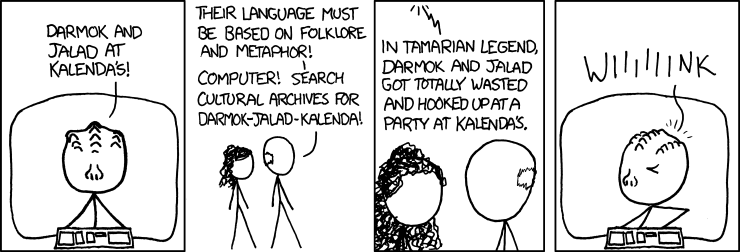Last night, as I was letting my mind wander, as I do every night to help me go to sleep, I started wondering how the universal translator in Star Trek works. I mean theoretically it "hears" the words being spoken, then translates them into as many different languages as necessary, each being hearing their own native tongue. If it's doing it based off of sounds, why aren't we hearing all the languages simultaneously? If it works by reading "intent" off of people's minds, why doesn't it always work, and how can people still lie? How does it know when someone wants to speak Klingon and have it be heard as Klingon and not be auto-translated? Why didn't I have to teach the dictionary in my web browser that Klingon is really a word? Wouldn't it just be easier to shove a Babel fish in everybody's ear and call it done? Why hasn't there ever been a deaf character in any of the series? Nothing short of magical healing planet radiation or the Q can restore Geordi LaForge's sight, but everyone can hear just fine? In the immmortal words of GOB Bluth, Huh, didn't realize how much of a rant that was going to be.
So, erm, any thoughts? Anybody?
So, erm, any thoughts? Anybody?

